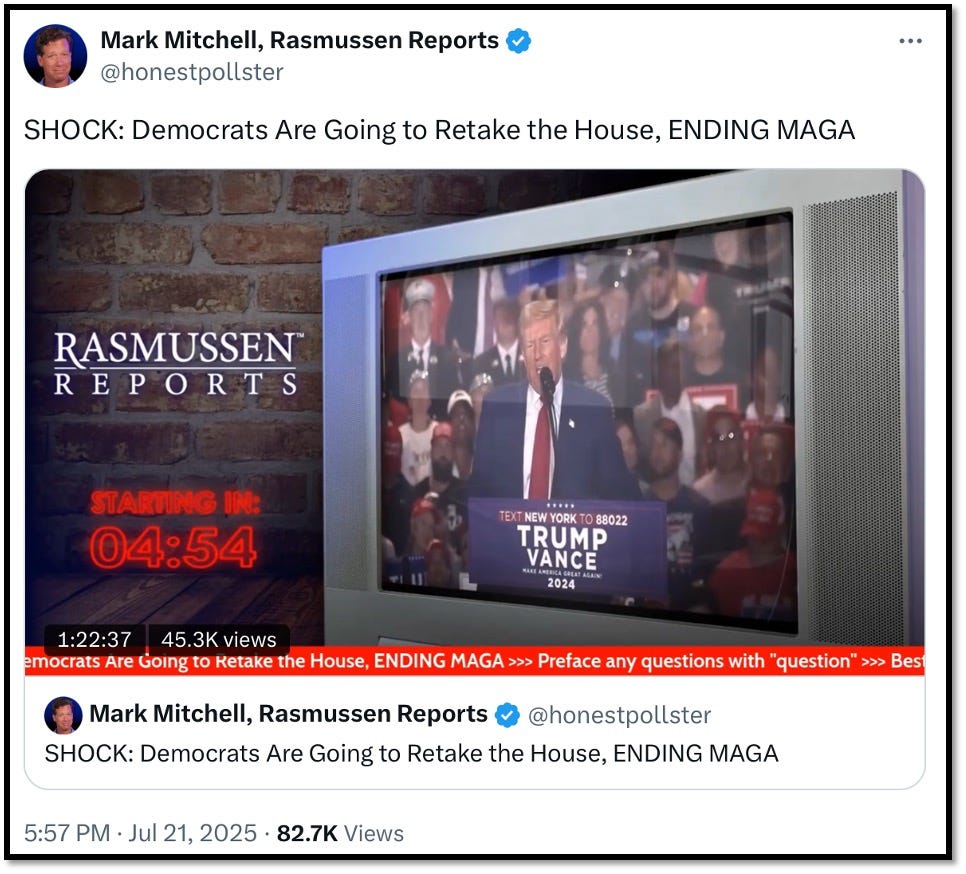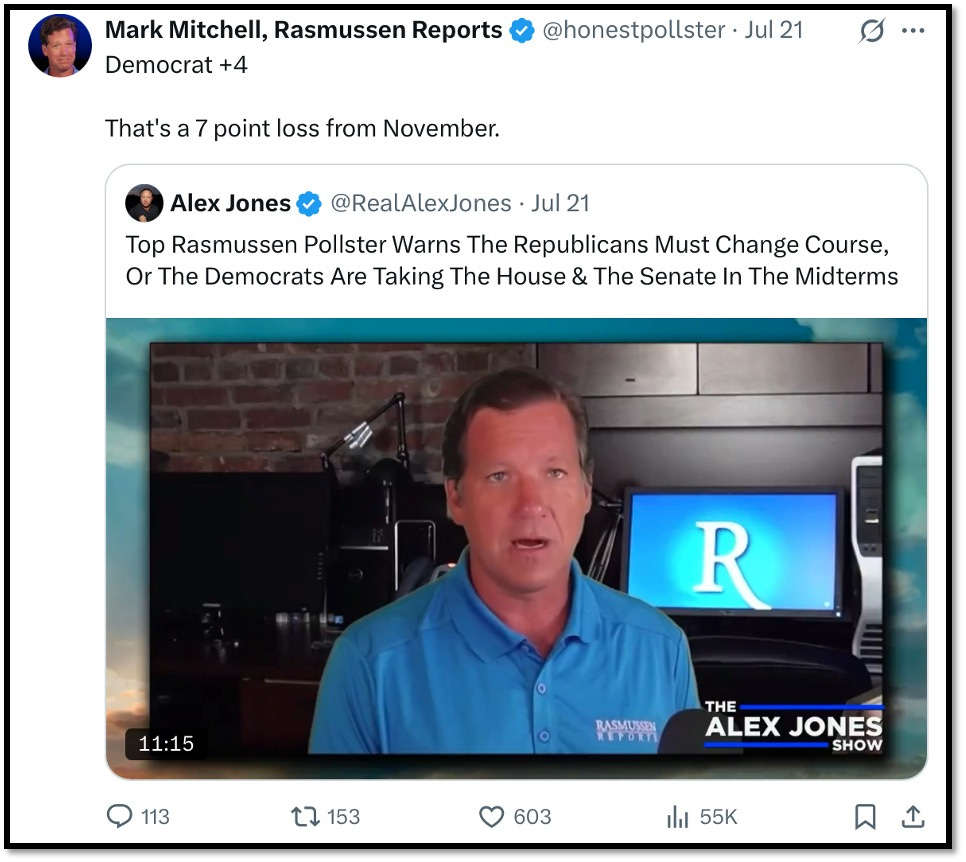Stop the Drama: 2026 Midterms Stand to be a Win-Win Either Way
Work toward long-term goals can begin as soon as we quit the dooming routine that conveniently ignores 92 years of history
Life is a matter of perspective, and so is politics. The side monitoring every news story and gauging daily happiness on the content of those stories is the side that is the least happy and most fearful, and consequently the one prone to the worst decision making. A perspective free of historical context is often lacking, resulting in setting of unrealistic expectations for those incapable of performing their own research.
In a perspective published last week, I introduced the sentiment that Republicans are starting to get a sinking feeling about 2026 midterms:
With the latest rounds of midterm polling, folks are finally coming to understand exactly what it is I’ve been saying about the U.S. House in particular, that the President’s party faces a massive headwind and is hard-pressed to retain or flip the most competitive seats, even if the President is doing well and enjoys solid approval. Trump’s own pollster, Fabrizio Ward, released polling earlier this week showing the GOP trailing Democrats in a big poll of 28 competitive districts:
Now, this poll is only useful for capturing the entire midterm dynamic, not laser-focused on individual seats, which are decided by candidate quality, campaign skill, strategic intelligence, local issues, and the national environment at the time of the race.
These negative feelings are often attached to various issues, such as losing the messaging battle after the signing of the One Big Beautiful Bill Act, or the public handling of the Epstein Files saga, which vanished into thin air this week now that some CEO and his side piece were spotted at a concert and everyone said, look, a squirrel!
This has led to a lot of melodramatic online commentary about the future of the MAGA agenda, as if people got behind it a decade ago with the only condition being that Republicans must hold the House in 2026 for it to be worthwhile.
Before proceeding, let me make it clear to all that I like and respect Mark Mitchell. We are friends, have frequently swapped insights, and have semi-frequent phone calls of a positive nature. He has trusted me with his figures before pushing them out to the public, and he was one of the better pollsters of the 2024 cycle. I am not ripping on him but merely preparing to offer a different perspective.
Mark is presenting findings from recent polling he has suggesting a Democrat +4 midterm turnout next fall, meaning 4 percent more Democrats in the electorate than Republicans. If true, considering a Republican presidential administration, keeping the House is a very tall task because the independents are likely to lean left of where they were in a presidential election two years before won by the GOP. Additionally, I’ve beat the dead horse of the corrupt 2020 U.S. Census into the ground so much you most certainly understand by now that the Republicans should enjoy a much larger majority than 220 to 215 (as elected).
It was always going to be this way. The midterm data since 1934 are very clear. 23 midterm U.S. House elections, and 20 in which the President’s party lost seats (for an average loss of 27 seats). Even great presidents were unable to escape this dynamic. Consider the last great Republican President, Ronald Reagan. He won 44 states and a popular vote margin of 9.7% in 1980, kicked so much Democrat ass he won 49 states in 1984, yet in the 1982 midterms, the GOP lost 26 House seats (net swing of 52 seats). In 1986, they lost 4 more, although enough strength in the Reagan agenda remained to get George H.W. Bush elected in 1988, marking the only occasion since the end of World War II a party won three consecutive terms in the White House.
This is just the way it goes, and it has more to do with turnout factors and political science than it does with the greatness (or lack thereof) of various presidents. Once we factor in that Democrats have mastered modern election rigging (harvesting of mass-mailed ballots sent to corrupt voter rolls), the hill becomes even steeper.
Ultimately, if the 2026 midterms are stressing you out, let’s look at the two pathways and understand how it is a win-win either way you slice it:
I. Republicans Lose the House






